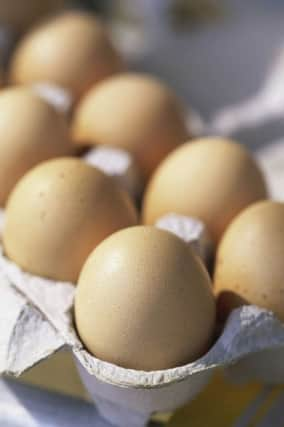Readers' letters - February 23


I am one of those awkward individuals – neither a vegetarian, nor a vegan, nor a ‘couldn’t care less’ meat eater. I am, alas, a guilty meat eater. One who feels that it would be perfectly acceptable to eat meat if an animal has had a good and happy life and a humane death.
It would be fairly easy for me to seek meat if I had a religious preference but as someone who simply cares about welfare, it is more difficult. If I go to a restaurant, how do I know the meat is ethically sourced?
Advertisement
Hide AdAdvertisement
Hide AdOrganic meat can be bought at supermarkets and butchers but what about supermarket ham sandwiches or a bacon roll? Or how do we know that, while we tuck into a pub meal of fried egg and chips, the egg doesn’t come from a battery hen confined in a tiny space?
How wonderful if there was a ‘Ethical’ label denoting a good life and death? And this became popular among consumers of cafes, pubs, takeaways and restaurants?
Maybe the truth is I have the tastes of a meat eater and the heart of a vegetarian, although these days even if I took the leap into becoming a vegetarian it wouldn’t be enough to make some militant social media vegans happy.
And even if I became a vegan, what if I still wore leather shoes or used a cosmetic product that was, unknowingly to me, tested on animals? Or ate dairy-free chocolate that had palm tree oil as an ingredient?
Advertisement
Hide AdAdvertisement
Hide AdLent is coming up and although I am not religious, it seems an ideal opportunity for me to be vegetarian for six weeks. Yes, I would love to be a vegan, but isn’t it better that we do something small than nothing at all, even if it is just the first step?
Jane
via email
Let’s limit horse racing to the flat
I had mixed feelings following the sad death of the Grand National winner Many Clouds.
There was much praise for the guts shown by this horse in all his races, but also fears for his wellbeing before and during his last race.
We learned the cause of death was severe pulmonary haemorrhage due most likely to fractured lung capillaries, and this is what he was suffering as his jockey urged him to more effort to win his last race. It’s too late now for Many Clouds, but isn’t it time the British Horse Racing Authority looked at the whole business of the jumping side of racing?
Advertisement
Hide AdAdvertisement
Hide AdAs proof that horses seem to be expendable, it came as a shock to me to learn that in just one year (2016) 143 died. This surely cannot be tolerated in a nation of animal lovers. When we watch either hurdles or fences and horses take the most horrific falls, TV commentators are too concerned with who wins the race and often fail to report the fate of the fallers!
If just a small proportion of the horse fatalities caused the deaths of jockeys, there would be a totally different response by the authorities.
Why can’t they limit racing to the flat, which in itself can be subject to casualties, but nothing like the scale of steeple chasing?
Horses are beautiful creatures and don’t deserve to die in such numbers whilst performing for our benefits.
Neil Kendall
Via email
How will we replace car jobs?
Advertisement
Hide AdAdvertisement
Hide AdIt seems almost inevitable that French carmaker Peugeot will buy GM’s loss-making European arm, which will probably mean the closure of the Vauxhall Plants in Luton and Ellesmere Port.
This could result in the loss of 34,500 jobs here, but it is understood this might also result in the possible closure of Germany ‘s Opel Cars.
However, it is understood that their 30,000 jobs have already been promised protection by Germany’s politicians.
EU over-capacity in car manufacturing and our impending Brexit negotiations make it extremely unlikely the French government (16 per cent owners of Peugeot) will provide us with any deals.
So it appears our Government will have the unenviable task of replacing these 34,500 jobs quickly in the near future to add to their other challenges.
EJ Tilley
Address supplied